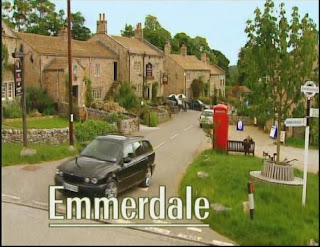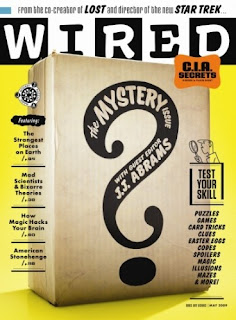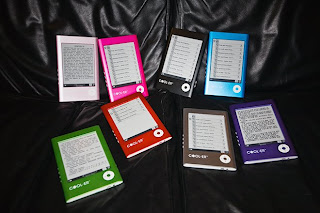 Strangely enough, the older I get, the less certain I get about many things, but I often find myself getting more and more convinced (some might say dogmatic) about aspects of the whole business of storytelling (and from that, writing).
Strangely enough, the older I get, the less certain I get about many things, but I often find myself getting more and more convinced (some might say dogmatic) about aspects of the whole business of storytelling (and from that, writing).
One such conviction relates to the notion of ‘playing fair’ with the audience, especially in tales involving a mystery or last-minute twist revelation. This isn’t a new notion by any means – S.S.Van Dine wrote about it over 80 years ago – but I think it’s one that remains key, especially as we reach a stage where ever more complicated and convoluted layers of bluff and misdirection are required to surprise an audience.
In murder mysteries, it’s pretty poor form to reveal that the killer was someone who we’ve never met before the final page; for this reason, due to only partly paying attention, I thought that the end of Jagged Edge was a cheat, as I thought it was revealing the killer to be a minor background character – not the case, but that’s the kind of thing I’m driving at.
Interestingly, I think that this is an expectation which audiences have carried over into general expectations of narrative, and I’d say that this is why hardly any (I’d go out on a limb and say none, but there’s almost inevitably an exception or two on a global scale) of the people who are voted winners of Big Brother are contestants who came into the house towards the end of the show’s run: you shouldn’t be able to win the game with a piece which hasn’t been on the board for the duration. For this reason, if you’re doing an exam which features a scenario with characters called A, B and C and you have to write about the scenario, you tend to get pretty short shrift (or, as it’s known in academic terms, crappy marks) if you introduce characters D and E and take the story in a direction more in line with the areas you’ve revised.
Also in murder mysteries, there’s pretty much a tacit rule that you will, at some stage, reveal the identity of the murderer (or murderers). It’s rare to have a story where you can get away with hooking the reader in with a ‘whodunnit?’ mystery and then get away with not stating who the killer is because another, more compelling storyline intervenes. David Lynch apparently didn’t want to reveal who the killer of Laura Palmer was in Twin Peaks, and as much as I love that show, I’d have felt rather cheated if the mystery hadn’t been resolved; similarly, the opening scene of The Wire sets up a murder scene, and whilst I haven’t watched enough of the show to know if we find out who killed the delightfully-named Snot Boogie, I rather hope so, though I guess one might argue that in the more naturalistic vein of that show, an unsolved murder may be more part of the setting than a narrative thread in its own right.
In fact, now I muse upon it, I can’t think of any entirely satisfying stories that end with a murder left unresolved; I’m perhaps being stupid, but I was left uncertain as to the killer’s identity at the end of Grant Morrison and Jon J Muth’s The Mystery Play, and so for me the story – unfortunately given its themes – ended without the appropriate Revelation. I have a feeling that the end of the Polanski film The Ninth Gate may have ended with some of its plot threads left dangling, though that might just be my memory playing tricks; I have a vague recollection of it ending with the protagonist standing before the place he’s been seeking, and the film just rather ending. On the other hand, that in itself is rather like the end of Browning’s poem Childe Roland To The Dark Tower Came, which ends in a similarly ‘sudden’ fashion; no wonder Stephen King was inspired to write about what happened when Roland arrived at The Dark Tower.
I suppose the most famous example of a story finishing with a murder left unsolved would be The Big Sleep by Raymond Chandler, wherein the death of the chauffeur Owen Taylor isn’t solved. Legend has it that when they were making the film version, the screenwriters realised that this wasn’t explained in the novel, and sent a telegram to Chandler asking who had killed Taylor… only to receive the reply that he didn’t know either.
Anyway, all this sort of thing has been on my mind lately because it seems that the good people behind Emmerdale appear to have decided to just let the Who Killed Tom King? storyline drop away, despite the fact that the murderer has not been brought to justice. Granted, the audience knows who killed him (unsurprisingly, one of his family), but given the publicity that surrounded the murder itself when it was screened in December 2006, it feels a little like a joke without a punchline for there not to have been some equivalent narrative closure, to my mind. In the same way that I as an audience member didn’t feel raging hysteria when John Hannah’s character recited Monty Python lines in Sliding Doors, for me as an audience member it doesn’t quite ring true that people who live in such a small village would be content to go about their lives in the pretty certain knowledge that a killer still walks amongst them.
It’s often said – again, I refer you to Mr Van Dine’s article linked above – that in a mystery story it’s only right that the audience is at an level of knowledge equivalent to that of the detective; that seems fair to me, as it allows you to play along and try to solve it, which adds to the enjoyment and involvement. However, it occurs to me that it’s not just that the characters shouldn’t be privy to facts which the reader is excluded from, but that the reverse is equally true; unless you’re seeking to display the disparity between what characters in a story believe to be true, and the actual situation (as in, say, Peep Show), you probably don’t want the audience to be privy to knowledge which, if the characters were aware of it, would make them see things in a very different way. Or, at least, not for a sustained period of time.
It may well be that there’s a plan to bring some proper in-world resolution to the Tom King murder storyline in Emmerdale – though I have to hope they’re not going to wait until the traditional big-story time of Christmas to wheel it out, as that would make it two years since its inception, including many months where it’s not been given much airtime – because at the moment it means that I’m watching the programme with a feeling that something major’s going unresolved.
Whilst it’s established to the viewer that the death was an accident, a crime of passion unlikely to happen again, the characters living in the village don’t know that, and so within the reality of the show it’s something that would cast a shadow over their daily lives. What it does, more than anything, is remind me of the artifice of the programme, as if I’m constantly able to see the strings and hear the plot levers moving things, whilst a elephantine item in the middle of the room goes ignored.
And one of the things I’ve always been sure about, when it comes to the telling of stories, is that you want to utterly absorb your audience in the story; if you’re going to tell a tale of events which never happened to people who don’t exist in a made-up situation, you want avoid reminding your audience of this by jolting them out of the story, especially on something avoidable and fundamental.
Am I over-thinking this? Very possibly, but I wanted to provide a bit more of a meaty post today by way of balancing out the recent tendency towards just supplying you with links, and it was either this or a rather more facile post about the way that EastEnders seems to want to present the Mitchell sisters as alluring sex kittens but completely blows it by having them spend most of their time either shouting angrily or crying. Perhaps I’ve got strange tastes, but I don’t find that particularly appealing, on my TV screen or in real life.
 I don’t often review single issues of comics here on’t blog – or collected comics, for that matter – but this is a good ‘un, and I thought it was worth drawing to your attention.
I don’t often review single issues of comics here on’t blog – or collected comics, for that matter – but this is a good ‘un, and I thought it was worth drawing to your attention.









